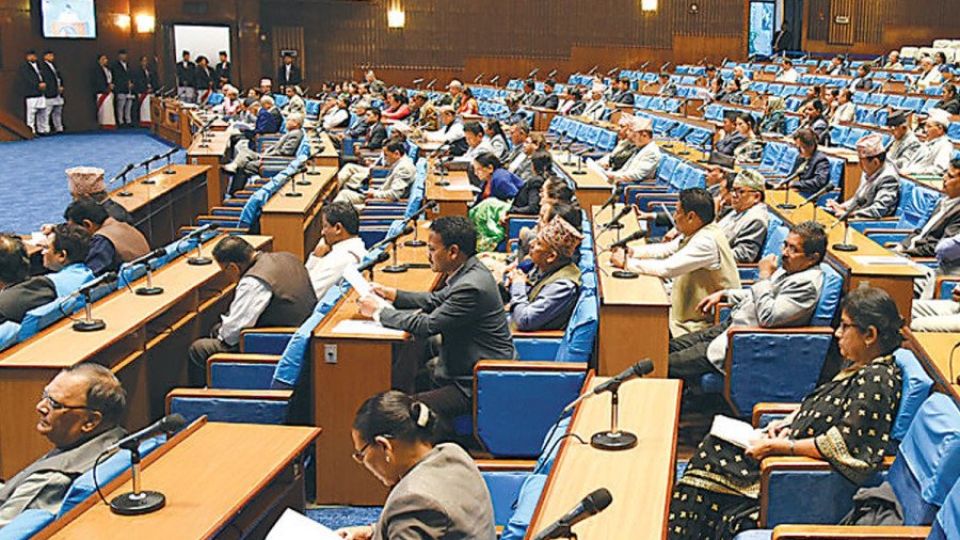December 16, 2024
KATHMANDU – Preparations are on to call the winter session of the federal parliament from the first week of January, amid the opposition’s claims that the government wants to push back the session.
Prime Minister KP Sharma Oli, Speaker Devraj Ghimire, and Minister for Law, Justice and Parliamentary Affairs Ajay Chaurasiya held informal discussions on Friday to take stock of the bills that may be presented before lawmakers. The budget session of Parliament was prorogued on September 17, weeks before the major festival began, without enough bills to work on.
“Discussions are ongoing to ensure the upcoming session has adequate business. We want the House committees to finalise some of the bills while the government will also register new bills by the time the new session commences,” Chaurasiya told the Post. As per the records at the parliament secretariat, 20 bills are with the parliamentary committees.
Several of them have been pending for over a year as the committees failed to finalise them. Five bills are under consideration in the Finance Committee, while the State Affairs and Good Governance Committee has four bills to decide on. Similarly, the Infrastructure Development Committee; the Education, Health and Information Committee; and the Law, Justice and Human Rights Committee have at least one bill each to discuss and finalise.
At least twice in the last two months, Ghimire has asked the chairpersons of the committees under the House of Representatives and the National Assembly, in the presence of the party chief whips, to finalise the bills and send them to the full House. However, the committees have not finalised a single bill so far.
Chauriya said there will be no dearth of business if the committees pass some pending bills while the government will also register some new ones. The government has not registered any bills since July.
“Our ministry is reviewing different bills drafted by various ministries,” said Chaurasiya, the parliamentary affairs minister. Draft bills related to splitting of the Civil Aviation Authority of Nepal, integrated election laws, and amendments to the Nepal Police Act, among others, are under consideration.
The Cabinet must endorse the bills drafted by various ministries before being registered in Parliament. Such bills are first discussed in the full House and then sent to the respective committees to streamline the amendments. They must get through both chambers and receive the presidential seal before becoming a law.
Officials at the parliament secretariat say the government is under pressure to summon an early session amid fears that the opposition could demand a special session. “We have heard that the opposition might demand a special session, claiming the government wants to push back the winter session,” said a senior official at the secretariat. “However, to my knowledge, there have been discussions between the government and the Speaker for the new session. It should start in a few weeks.”
Speaking at a party event last week, Dahal claimed that the Oli government was unwilling to call the winter session because it was afraid of facing criticism. The main opposition is looking for a platform to criticise the government, claiming it was promoting corruption and shielding the corrupt. Similarly, the Rastriya Swatantra Party, which says the government was targeting its president by prolonging his corruption trial, too is waiting for the opportunity to attack the government.
One fourth of lawmakers of the 275-strong lower house can petition the President for a special session of Parliament.
The last winter session commenced on February 5. The President summons and prorogues Parliament on the government’s recommendation. There cannot be a gap bigger than six months between two sessions.
Several bills have yet to be passed for a full-fledged implementation of the new constitution. A subpanel under the Legislation Management Committee of the National Assembly reported that the government still needs to prepare 39 bills. The five-member subpanel led by Beduram Bhusal has accused successive governments of paying little attention to making legal arrangements necessary for the charter’s full implementation. Seven governments led by the Nepali Congress, the CPN-UML and the CPN (Maoist Centre) have been formed since the promulgation of the constitution in 2015.


